
The Pan American Health Organisation and the Ministry of Health are pushing to reach 80% of the population in their campaign against lymphatic Filariasis.
The last time the campaign was held in 2019, the health agencies were able to reach more than 500,000 persons and ensured they took their pills to protect them against filaria.
Lymphatic Filariasis is considered a neglected disease not only in Guyana but globally because the mortality rate for the disease is low.
However, in the advanced stages of the disease, it brings great suffering and the Campaign seeks to eliminate the disease as a public health problem.
Dr. Reza Niles who is the Focal Point for Neglected Infectious Disease, Vector Control Services at the Ministry of Public Health explained that ‘we are very excited that we will have the last round of our Mass Drug Administration Campaign’.
The campaign will see pill distributors moving across the endemic regions (all regions except 8 and 9) of Guyana making the Triple Drug Therapy which includes Ivermectin, Diethylcarbamazine and Albendazole available to persons.
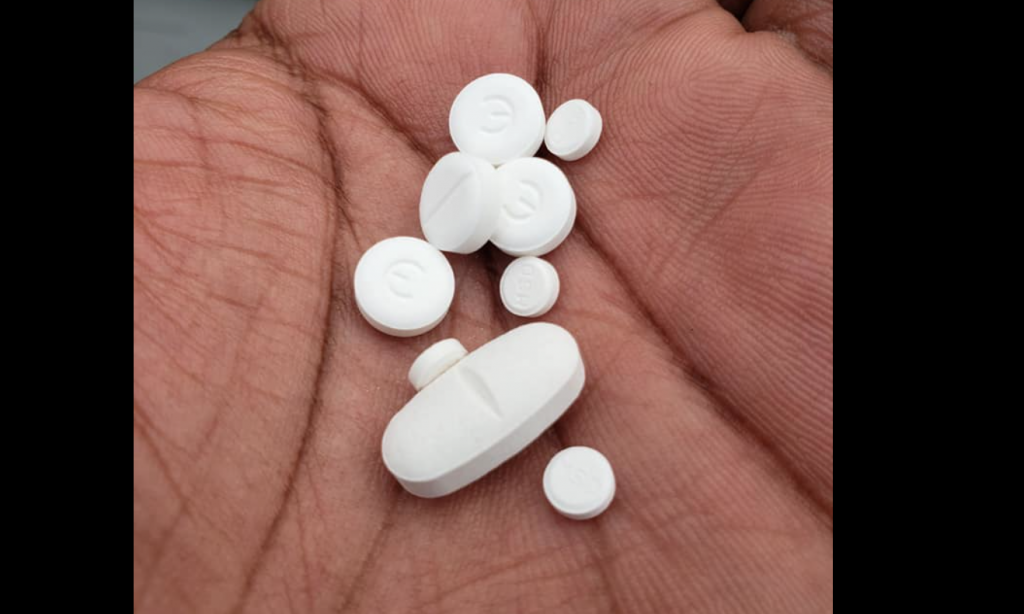
The pills will not compete with medications being taken for other conditions according to Dr. Niles.
The pills will be made available to everyone except pregnant women, children less than two years old and seriously ill persons.
Persons taking the pills, which is not mandatory will be required to swallow them in the presence of Pill Distributors.
Some of the common possible side effects include drowsiness, nausea, abdominal pain, fever, and rash.
Addressing rumors surrounding participation in the programme, Dr. Niles suggested that “persons will speculate. We don’t have a problem, but we’ll argue the facts.”
She said that taking the pills reduces the transmission rate of the worms that cause filaria.
She is hopeful that Guyana can one day be recognized by the WHO as one of those countries free from Lymphatic filariasis, however, such will require the participation of many persons.
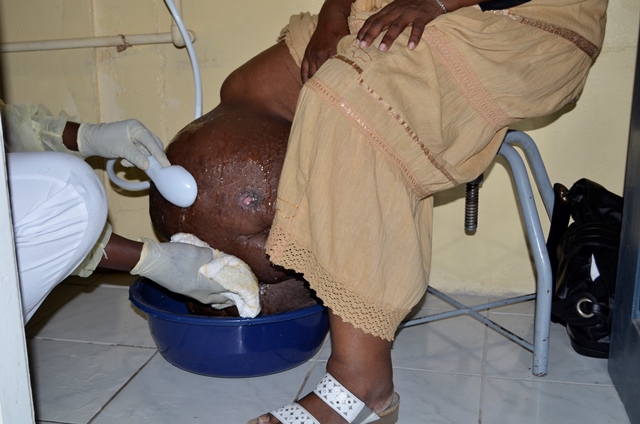
Lymphatic filariasis, is a parasitic disease caused by microscopic, thread-like worms. The adult worms only live in the human lymph system. The lymph system maintains the body’s fluid balance and fights infections. Lymphatic filariasis is spread from person to person by mosquitoes.
People with the disease can suffer from lymphedema and elephantiasis and in men, swelling of the scrotum, called hydrocele.
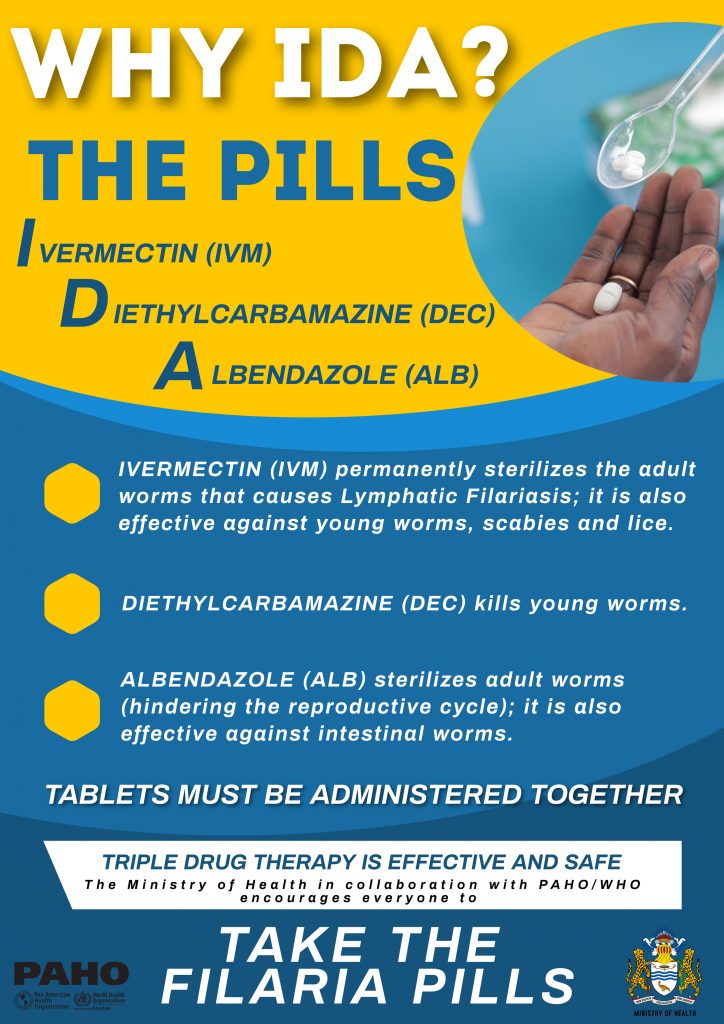











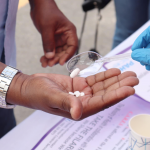

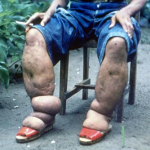
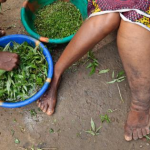


You must be logged in to post a comment Login